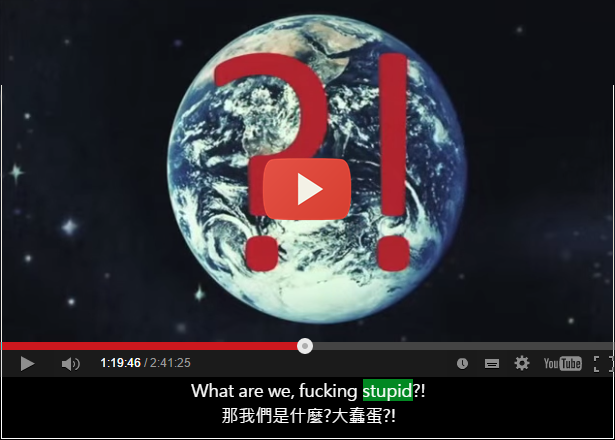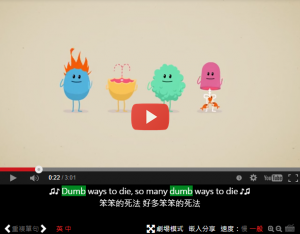蠢事天天在發生,該如何用英文來說別人笨、或是一件事情笨呢?快來看看關於stupid, dumb, foolish的相關用法;不僅如此,還要看看關於愚人節的來源喔!
Stupid, Dumb, Foolish
Stupid
Stupid (adj.)
1. : not intelligent, or not able to consider or judge things carefully
不聰明(智商不高),或是無法正確、小心地思考與判斷
e.g. Barbara’s too stupid to understand.
芭芭拉太蠢了而無法理解
2. :talking about something that you think is silly or annoying
提到關於你覺得蠢、煩人的東西和事情
e.g. This is a stupid idea.
這是個愚蠢的想法
Stupid (n.)
: an insulting name for someone who you think is being stupid
對表現愚蠢的人的羞辱性稱呼
e.g. ‘Hey, stupid! What do you think you’re doing!’

Dumb
Dumb (adj.)
: stupid, not intelligent
愚蠢的,不聰明(智商不高)
e.g. I’m so dumb I have to look up dumb on urban dictionary to find out what it means.
我是如此地愚蠢,因為我需要在Urban Dictionary中查詢dumb的意思

Dumb dumb/ Dumb-dumb (n.)
: a common term used when someone is being stupid or idiotic… or just dumb
常用在當一個人蠢、笨、白癡,是為名詞
e.g. Jason is a dumb dumb.
傑森是個呆子、白癡
Foolish
Foolish (adj.)
1. : lacking good sense and judgment
缺乏好的判斷力
e.g. I made wrong decisions when I was young and foolish.
當我還年輕而且很蠢時,我做了很多錯誤的決定
2. : embarrassed because of something stupid that you have done
因為做了蠢事而感到尷尬
e.g. I tried to ask a question, but just made myself look foolish.
我試著問了一個問題,但這只讓我看起來很蠢
Fool (n.)
: someone who does not behave in an intelligent or sensible way
無法表現得體、明智的一個人
e.g. How can you be such a fool?
你怎能如此地蠢/你怎能是這麼一個蠢蛋?
Fool (adj.) =stupid
Fool (v.)
: to trick someone by making them believe something that is not true
透過讓某人相信一件不對的事情來戲弄他
e.g. She finally realized she’d been fooling herself – he didn’t really love her at all.
她終於了解她一直在欺騙自己:他根本沒有愛過她
比較
Stupid, dumb, foolish 在意思上的差別不大,若要仔細區分有以下大略的分法:
stupid 1.人智商不高 2.人事情做不好 3.物很煩人或愚蠢
dumb 1.人智商不高
foolish 1.人事情做不好、判斷不佳 2.人因做蠢事而感到尷尬
在用法上的差異:
stupid: be stupid of someone to V. 某人做某事很蠢
be stupid to V. 某人做某事很蠢
dumb: play/act dumb 表現地很蠢
foolish: be foolish to V. 某人做某事很蠢
額外補充
Dumb有第二種意思
: temporarily unable or unwilling to speak, especially because you are very shocked
暫時無法、不想說話,通常因為受到驚嚇
e.g. Some of the passengers were dumb with terror.
一些路人因為受到害怕而說不出話來
April Fools’ Day
April Fools’ Day is celebrated every year on the first day of April. It is celebrated as a day when people play practical jokes and hoaxes on each other. The jokes and their victims are known as “April fools“.
愚人節在4月1號,人們在這天互相開玩笑、惡作劇,而這些惡作劇、玩笑以及被愚弄的人就稱為April fools

Origin: New Year’s Day Moves
Ancient cultures, including those of the Romans and Hindus, celebrated New Year’s Day on or around April 1.
In 1582, Pope Gregory XIII ordered a new calendar to replace the old Julian Calendar. The new calendar called for New Year’s Day to be celebrated Jan. 1. That year, France adopted the reformed calendar and shifted New Year’s day to Jan. 1. According to a popular explanation, many people either refused to accept the new date, or did not learn about it, and continued to celebrate New Year’s Day on April 1. Other people began to make fun of these traditionalists, sending them on “fool’s errands” or trying to trick them into believing something false. Eventually, the practice spread throughout Europe.
很久以前,羅馬人與印度人在4月1號慶祝新年的到來。
西元1582年,教宗喬治八世制定了新的年曆制度來取代原本的儒略歷。新的制度在1/1慶祝新年的到來。而法蘭西帝國跟進教宗的選擇,在1/1慶祝新年。根據可信、較具知名度的解釋,許多人不是拒絕這個新制度,就是根本不知道這件事情,於是仍然在4/1慶祝新年。其他人開始愚弄這些傳統人士,叫他們去做一些”愚蠢的雜事”來讓他們相信一些不是真的的事情。最後,這個習俗橫遍歐洲,延續至今。
愚人節超強影片:https://www.youtube.com/watch?v=R9rymEWJX38
更多關於愚人節的資料:
http://www.infoplease.com/spot/aprilfools1.html
http://zh.wikipedia.org/wiki/%E6%84%9A%E4%BA%BA%E8%8A%82
作者: Brant Tien
Source: Urban Dictionary, Macmillan Dictionary
Photo Source: Flicker, CC Licensed, Flicker, CC Licensed
